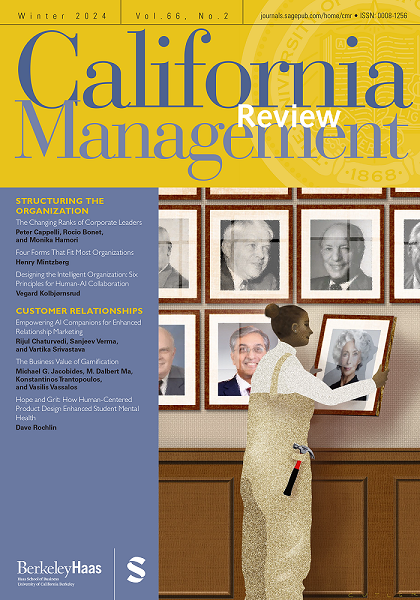Escaping the Governance Trap: Insights from New Infrastructure Development “Megaprojects”
IF 7.3
2区 管理学
Q1 BUSINESS
引用次数: 0
Abstract
Summary Mega infrastructure projects in liberal democracies often encounter significant cost overruns and delays. These challenges arise from tensions between mandated stakeholder engagement and shareholder-focused decision making. Legal frameworks require broad stakeholder involvement, yet investors prioritize cost efficiency, frequently omitting collaboration expenses from initial budgets. This misalignment creates governance traps, leading to prolonged negotiations, inefficiencies, collective action problems, and diminished trust among managers, stakeholders, and investors. This special section of摆脱治理陷阱:新基础设施发展 "巨型项目 "的启示
自由民主国家的大型基础设施项目经常遇到严重的成本超支和延误。这些挑战来自强制性利益相关者参与和以股东为中心的决策之间的紧张关系。法律框架要求广泛的利益相关者参与,但投资者优先考虑成本效率,经常从初始预算中忽略协作费用。这种错位产生了治理陷阱,导致谈判延长、效率低下、集体行动问题,以及管理者、涉众和投资者之间信任的减少。《加州管理评论》的这一特别部分考察了大规模利益相关者赋权的动态。本文介绍了一个2x2框架,根据利益相关者的法律要求和以股东为中心的投资决策的程度,对大型项目治理进行分类。专题文章提出了增强涉众协作和解决治理挑战的策略。总之,它们表明,当组织享有充足的资源或强有力的合作规范时,大规模的利益相关者参与可能是有效的。如果缺乏这些机制,就可能出现治理陷阱,阻碍效率和广泛的财富创造。可以采用替代的社会安排来避开这些治理陷阱。
本文章由计算机程序翻译,如有差异,请以英文原文为准。
求助全文
约1分钟内获得全文
求助全文
来源期刊

California Management Review
Multiple-
CiteScore
18.40
自引率
3.00%
发文量
23
期刊介绍:
California Management Review (CMR) serves as a vital link between academia and management practice, offering leading-edge research with practical applications. Edited at UC Berkeley’s Haas School of Business, CMR covers a wide range of management topics, including innovation, strategy, sustainable practices, and human resources. CMR ranks among the top management journals globally, distributing articles through outlets like Harvard Business School Publishing and SAGE Publishing. Focused on bridging academia and practice, CMR ensures that all articles are based on rigorous academic research while providing actionable insights for managers. In addition to regular issues, CMR publishes special issues and sections on relevant topics, often guest-edited by leading faculty. Recent special issues have covered dynamic capabilities, city innovation, big data, and intellectual property management.
 求助内容:
求助内容: 应助结果提醒方式:
应助结果提醒方式:


